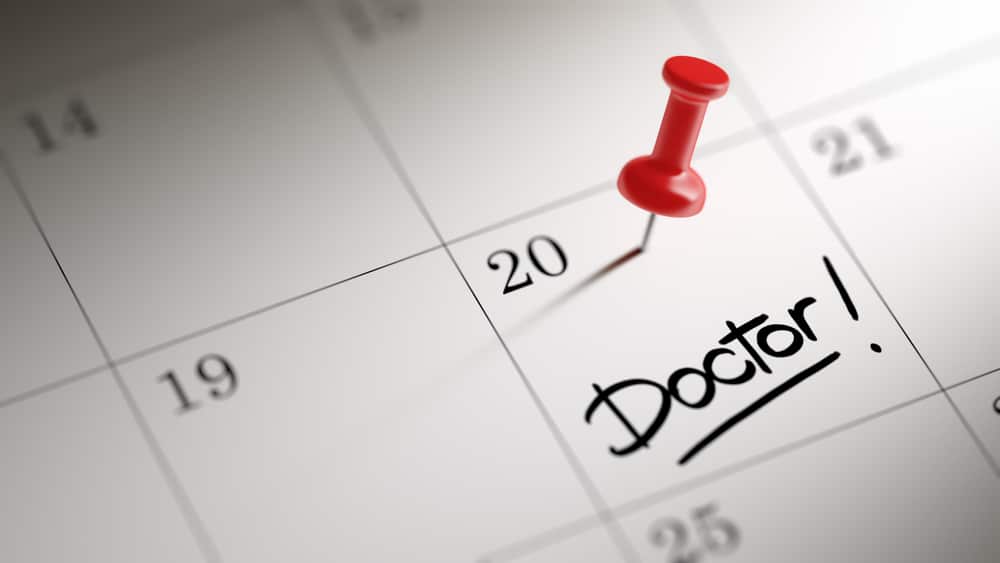Medically Reviewed by: Edward C. Wade, M.D., F.A.C.S.
Do You Really Need an Annual Eye Exam?
Since April is women’s eye health and safety month, Eye Center of Texas is here to talk about one of the easiest ways you can take care of your eyes regardless of your age or gender — annual eye exams.
Early detection is one of the best ways to prevent eye diseases such as cataracts, age-related macular degeneration, and dry eye disease, all of which are eye conditions that women are more likely to develop. So, the short answer to the title of this blog is yes, you really do need an annual eye exam.
Please note that the doctors at Eye Center of Texas do not perform routine eye examinations. We encourage our patients to visit our partner Optometrists, available on our recommended optometrists page.
What is an eye exam?
During an annual eye exam your eyes are checked for vision changes, signs of common eye diseases, and assessed for how well they work together. At your eye exam, you can expect simple tests to be ran including one or more of the following:
- Reading charts: assess how clearly each individual eye sees
- Eye muscle movement tests: used to check your eyes alignment, ability to fuse an image, and determine any eye muscle weakness
- Color vision tests: checks for color vision defects
- Air puff tonometry: emits a small puff of air into your eyes to assess intraocular pressure and measure the cornea and test for glaucoma
- Slit lamp: a test using a circle of light to check the health of your cornea, iris, lens, and retina
- Visual acuity test: assess each eye’s ability to read a line of letters as they get progressively smaller
- Refraction tests: determines the exact lens prescription you need to correct your vision
- Retinal examination: dilates your pupils to allow your doctor a better look at the back of your eyes and optic nerve
The importance of annual eye exams extends far beyond assessing your vision and overall health. They can also give you a good look into your overall health. Regular eye exams have been responsible for early detection of diseases like diabetes, muscular sclerosis (MS), and arteriosclerosis — all the more reason to schedule an exam with your optometrist, particularly if you haven’t had an eye exam in years, and even if you have perfect vision.
Which doctor does eye exams?
Do ophthalmologists do eye exams? Optometrists and ophthalmologists are often confused with one another. While both are licensed medical doctors who are able to offer eye exams, opthamologists are also able to provide medical and surgical interventions for eye conditions.
How often should you have your eyes examined?
Frequency recommendations for routine eye exams depend on your age and vision problems. Individuals aged 20 to 39 should be seen a minimum of once every five years, individuals aged 40 to 54 should be seen a minimum of once every 2 to 4 years, and individuals aged 55 to 64 should be seen a minimum of once every 1 to 3 years. Those looking to ensure that they maintain a lifetime of healthy vision, however, should see an eye doctor at least once a year.
It is recommended that you have a comprehensive eye exam done at least every other year as regular visits allow your doctor increased opportunities to catch symptoms of eye diseases such as glaucoma, age-related macular degeneration, diabetic retinopathy, cataracts, and dry eye syndrome. Early detection may be the key in protecting the long-term health of your eyes. If you have vision impairments or are monitoring certain conditions, you may need to schedule eye doctor appointments more than once a year.
Please note that contact fittings and vision screenings are not a substitute for annual eye exams as they do not test for eye conditions beyond vision impairments.
Comprehensive eye exam vs. a routine eye exam
Routine eye exams
What is included in a routine eye exam? Routine eye exams can help you answer questions about your vision such as “do I need reading glasses?” or “what are possible presbyopia treatments?” In other words, routine eye exams use visual acuity tests to look for vision impairments or refractive errors such as myopia (short-sightedness), hyperopia (far-sightedness), astigmatism, and/or presbyopia. They can also help to treat symptoms such as glare, halos, headaches, and eye strain.
Comprehensive eye exams
What is a comprehensive eye exam? A comprehensive eye exam checks for all of the same things that a routine eye exam does but with the addition of screening for common eye diseases. These tests include the visual acuity test as well as many of the others mentioned above such as eye muscle movement tests and cataract eye exams including pupil dilation and air puff tonometry.
Looking for an ophthalmologist in Houston? Schedule an appointment at the Eye Center of Texas!
In honor of women’s eye health and safety month, the team at Eye Center of Texas would like to encourage you to schedule your annual eye exams with one of the Houston doctors on our referral list. Regular eye exams are a critical part of taking care of your eyes and your overall health.
If your eye doctor finds that you are suffering from eye issues such as vision loss, cataracts, or glaucoma, schedule an appointment to see us. Our office offers long-term vision solutions including laser cataract surgery and cornea surgery. We’ve also performed over 75,000 successful LASIK procedures and have been Houston’s trusted vision partner since 1990.
Request an appointment with us online or call Eye Center of Texas today at 713-797-1010.
Please note that the doctors at Eye Center of Texas do not perform routine eye examinations. We encourage our patients to visit our partner Optometrists, available on our recommended optometrists page.
More Helpful Articles by Eye Center of Texas:
- Eye Strain Treatment in Houston
- Lasik vs. Contacts: Which is Best for You?
- What to Expect With Lasik Before and After Eye Surgery
- When is Corneal Transplant Necessary?
- Is Corneal Transplant Surgery Painful?
Related Articles
Financing Options Available
Apply today to find a financing option that meets your needs.
Our Locations
Houston/Bellaire
6565 W. Loop S., Suite 650Bellaire, TX 77401
Medical Office:
713-797-1010
Medical Fax:
713-357-7276
LASIK/Near Vision:
Office: 713-395-1515
Fax: 713-357-7278
Pasadena
4415 Crenshaw RoadPasadena, TX 77504
Medical Office:
281-977-8800
Medical Fax:
281-977-8877
Sugar Land
15200 S.W. Freeway, Suite 130Sugar Land, TX 77478
Medical Office:
281-277-1010
Medical Fax:
281-277-4504
Clear Lake
455 E. Medical Center Blvd., Suite 110Webster, TX 77598
Medical Office:
281-332-1397
Medical Fax:
281-282-9152
Katy
Greenhouse Medical Plaza2051 Greenhouse Road, Suite 110
Houston, TX 77084
Medical Office:
346-547-7070
Medical Fax:
281-214-2971
The Woodlands/Conroe
100 Medical Center Blvd., Suite 118Conroe, TX 77304
Medical Office:
936-647-1610
Medical Fax:
936-647-1620


